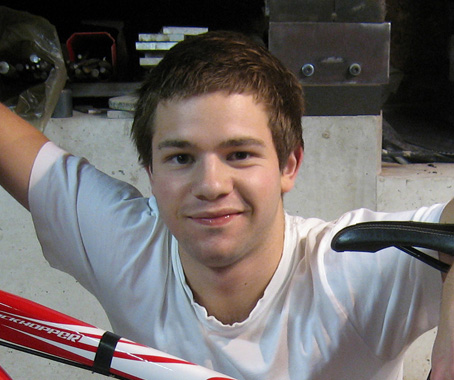
An Australian industrial design student is one of eight from around the world to reach the final of the Electrolux Design Lab 2010.
Daniel Dobrogorsky, from Monash University, impressed the judges with his ‘Kitchen Hideaway’ vision, a concept that tackled the brief head on: To create a product, which overcomes the challenges of living in 2050, when 74% of the global population are predicted to live in an urban and compact environment.
Story continues below advertisement
Dobrogorsky’s futuristic entry is a device and system combined, allowing the user to create their own virtual kitchen to prepare food, without physically requiring space.
The Kitchen Hideaway is designed to overcome the foreseeable spatial limitations of a society envisaged by Dobrogorsky – where people live with minimal space, in communal buildings within the Mega cities of 2050.
By simply attaching the headset, each individual engages in a virtual cooking experience, rendering physical appliances such as a fridge or hotplate redundant.
Story continues below advertisement
Having cooked your virtual meal, the digital instructions are sent to the building’s ‘Food Factory’, an automated robotic kitchen where your real meal is then prepared and delivered.
Inspired by the postmodern notion of hyper-realism as well as current trends in interactive gaming and social media, Dobrogorsky explains that people in fact relish living in hyper-reality:
Story continues below advertisement
“Consumers enjoy escaping the natural world in a cognitive sense – that’s why it could be used in a functional space-saving sense in the future.”
The winning entry was awarded to Peter Alwin of the National Institute of Design in India for his invention of ‘The Snail’, a portable heating and cooking device.
Electrolux Design Lab
electroluxdesignlab.com
The Kitchen Hideaway
The Snail by Peter Alwin